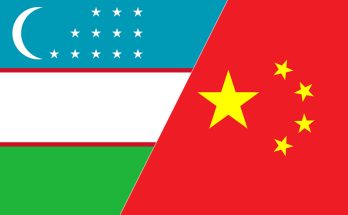#Pakistan, #PakistanEconomy
IBNS: Pakistan is grappling with a crippling economic crisis, losing a staggering USD 23 billion per year due to the pervasive issues of black marketing and smuggling, according to a recent report by ACE Money Transfer, a UK-based company.
These illicit activities encompass a wide range of clandestine operations, including black market currency trading, oil smuggling, gold smuggling, and circumvention of import controls. The impact of these activities is not only causing significant financial losses but also posing a severe threat to Pakistan’s economic stability, government revenue, and overall financial health.
The ACE report underscores the profound consequences of these underground economic activities. They not only foster a shadow economy, making it increasingly challenging to monitor and regulate financial transactions, but also distort exchange rates. This distortion, in turn, leads to currency devaluation and soaring inflation as imported goods become prohibitively expensive for ordinary citizens.
Perhaps more worrying is the erosion of trust and confidence in Pakistan’s financial system, as these illicit operations undermine the effectiveness of monetary policies. In recent years, Pakistan has witnessed significant fluctuations in exchange rates, exacerbating its economic woes. To address these pressing issues and pave the way for economic recovery, experts unanimously stress the immediate need to eradicate smuggling in key sectors.
Rashid Ashraf, CEO of the ACE group of companies, emphasizes that improved governance is the linchpin for achieving this objective. He asserts that a concerted effort to combat smuggling and enhance regulatory measures will not only restore stability to financial markets but also foster economic and financial growth in Pakistan.
The ACE report provides a breakdown of the staggering losses incurred by Pakistan. Dollar smuggling alone siphons off approximately USD 150 million per month, resulting in an annual loss of around USD 2 billion. The gold smuggling racket is another major concern, with only a mere 1.32 percent of the total gold market value of PKR Rs 2.2 trillion (equivalent to USD 7.1 billion) being officially declared to tax authorities.
A grave concern is the rampant smuggling of Iranian oil, which accounts for over 30 percent of Pakistan’s diesel market. This nefarious trade deprives the government of more than USD 1 billion in revenue each year, further exacerbating Pakistan’s economic woes.
The report also underscores the unintended consequences of import bans, which, though well-intentioned, have led to the emergence of a shadow economy. Smuggling, misreporting, and product substitution have become commonplace methods to bypass import restrictions. This disruption in economic activity is poised to escalate unemployment figures, with projections exceeding 2 million people unemployed by the end of 2023 if corrective measures are not taken urgently.
To chart a course towards economic stability, Pakistan must prioritize a comprehensive crackdown on smuggling in key sectors, bolster governance, and put an end to illicit activities. Only through these concerted efforts can Pakistan hope to surmount its economic challenges and establish a foundation for sustainable growth. The time to act is now, as the economic well-being of the nation hangs in the balance.
(Image and text credit: Khalsavox.com)





